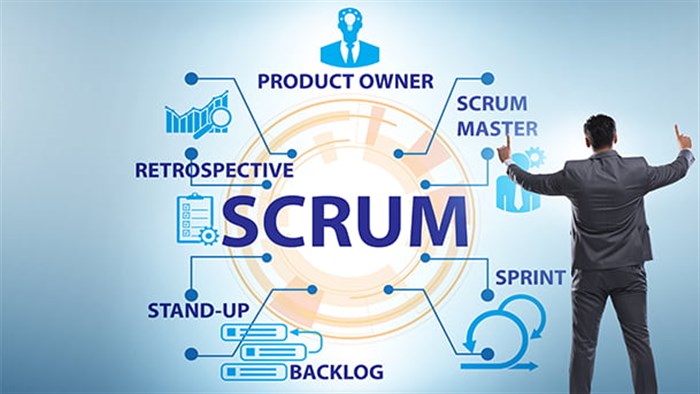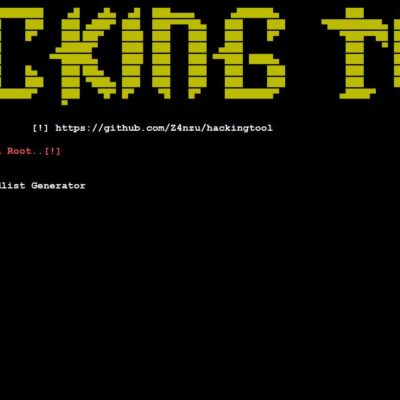
Your Guide to Scrum Master Career Path
Scrum Master, the role of a Scrum Master has become increasingly important in today’s fast-paced and dynamic business environment. Scrum Masters play a crucial role in facilitating agile development processes, fostering teamwork, and ensuring that teams are able to deliver high-quality products efficiently. If you are interested in pursuing a career as a Scrum Master or want to advance your existing Scrum Master career, this comprehensive guide will provide you with valuable insights into the Scrum Master career path.
Section 1: Understanding the Scrum Master Role
Before embarking on a Scrum Master career path, it’s essential to have a clear understanding of the role itself.
1.1 What Does a Scrum Master Do?
A Scrum Master is a servant-leader responsible for promoting and supporting Scrum practices within a team. Their primary role is to:
Coach and Mentor: Scrum Masters coach team members in the Scrum framework, Agile principles, and best practices.
Facilitate Scrum Events: They organize and facilitate Scrum events, such as Daily Stand-ups, Sprint Planning, Sprint Review, and Sprint Retrospectives.
Remove Obstacles: Scrum Masters identify and remove impediments or roadblocks that hinder the team’s progress.
Protect the Team: They shield the team from external distractions and disruptions to ensure a focused work environment.
Continuous Improvement: Scrum Masters foster a culture of continuous improvement within the team, aiming for higher efficiency and product quality.
Also Read…. exploring-the-power-of-jira-a-comprehensive-guide-to-effective-work-management
1.2 Qualities of a Successful Scrum Master
To excel in this role, Scrum Masters should possess certain qualities and skills, including:
Effective Communication: They should be excellent communicators, capable of facilitating discussions and conveying complex ideas clearly.
Empathy: Empathy helps Scrum Masters understand team members’ perspectives and build strong relationships.
Adaptability: Agile environments are dynamic, so Scrum Masters must adapt to changing circumstances.
Conflict Resolution: They should be skilled at resolving conflicts within the team.
Servant Leadership: A Scrum Master’s leadership style focuses on serving the team rather than exerting authority.
Section 2: Scrum Master Career Path
2.1 Entry-Level Positions
To start your Scrum Master career, you may consider entry-level positions that provide valuable experience in Agile and Scrum practices. These positions include:
Scrum Team Member: Join a Scrum team as a developer or tester to gain firsthand experience working in an Agile environment.
Product Owner Assistant: Assist a Product Owner in backlog management and prioritization to understand product development from their perspective.
Agile Coach Assistant: Work alongside an experienced Agile Coach to learn the ins and outs of Agile methodologies.
2.2 Scrum Master Certification
Obtaining a Scrum Master certification can significantly boost your career prospects. Popular certifications include:
Certified ScrumMaster (CSM): Offered by Scrum Alliance, the CSM certification is one of the most recognized and widely accepted certifications in the industry.
Professional Scrum Master (PSM): Provided by Scrum.org, PSM certifications are known for their rigorous assessments and focus on Scrum theory and application.
Certified Agile Coach (CAC): For those aiming to become Agile coaches, this certification covers advanced Agile and Scrum concepts.
2.3 Mid-Level Positions
As you gain experience and certifications, you can aim for mid-level positions in your Scrum Master career path, such as:
Scrum Master: Assume the role of a Scrum Master for a single team, gaining experience in managing Scrum processes and coaching team members.
Release Train Engineer (RTE): In larger organizations, RTEs coordinate multiple Agile teams within a release train, ensuring alignment and synchronization.
2.4 Advanced Positions
For those aspiring to reach the highest levels in their Scrum Master career, advanced positions include:
Agile Coach: Agile Coaches work at an organizational level, helping multiple teams and leaders implement Agile practices effectively.
Chief Scrum Master: In large enterprises, a Chief Scrum Master oversees multiple Scrum teams and ensures alignment with the organization’s goals.
Agile Transformation Consultant: These professionals guide organizations through Agile transformations, focusing on cultural change and process improvement.
Section 3: Skills Development
3.1 Continuous Learning
In the Scrum Master career path, continuous learning is vital. Stay updated on the latest trends, tools, and best practices in Agile and Scrum by:
Reading: Books, blogs, and articles on Agile and Scrum topics.
Attending Workshops and Conferences: Participate in Agile and Scrum workshops, conferences, and webinars to expand your knowledge.
Networking: Connect with other Scrum Masters and Agile professionals to share experiences and insights.
3.2 Technical Skills
While not mandatory, having technical skills can be advantageous for Scrum Masters, especially when working with technical teams. Consider learning:
Basic Coding: Understanding code and development processes can help bridge communication gaps.
DevOps Practices: Familiarity with DevOps principles and practices can enhance product delivery.
3.3 Soft Skills
Soft skills are equally important in a Scrum Master career. Focus on improving skills like:
Conflict Resolution: Develop strategies for resolving conflicts within the team.
Empathy: Enhance your ability to understand and connect with team members.
Facilitation: Hone your facilitation skills to lead productive Scrum events.
Section 4: Building Experience
4.1 Gain Hands-on Experience
Practical experience is invaluable in a Scrum Master career. To build experience:
Join Scrum Teams: Work with different teams and projects to gain a broad perspective.
Lead Scrum Events: Take on the responsibility of facilitating Scrum events to enhance your coaching and leadership skills.
Handle Complex Scenarios: Seek opportunities to tackle challenging situations and impediments to develop problem-solving abilities.
4.2 Mentorship and Coaching
Consider seeking mentorship from experienced Scrum Masters or Agile Coaches to learn from their expertise. Coaching others can also solidify your knowledge and skills.
Section 5: Advancing in Your Career
5.1 Specialize
As you progress in your Scrum Master career, consider specializing in areas like:
Scaled Agile Framework (SAFe): Specialize in SAFe to work with larger organizations.
Agile Leadership: Focus on developing Agile leadership skills to guide organizational change effectively.
Agile Metrics and Reporting: Become proficient in measuring Agile performance and delivering insights.
5.2 Pursue Leadership Roles
Leadership roles can provide new challenges and opportunities for growth. Consider roles like:
Head of Agile Delivery: Oversee Agile initiatives across the organization.
Director of Agile Transformation: Lead Agile transformations at an enterprise level.
5.3 Continuous Improvement
Continually seek ways to improve your skills, knowledge, and effectiveness as a Scrum Master. Gather feedback, reflect on your experiences, and adapt accordingly.
Section 6: Challenges and Solutions
6.1 Common Challenges
In your Scrum Master career, you may encounter challenges such as resistance to change, team conflicts, and unrealistic expectations.
6.2 Solutions
To overcome these challenges:
Change Management: Develop change management skills to address resistance effectively.
Conflict Resolution: Utilize your conflict resolution skills to mediate team disputes.
Manage Expectations: Set realistic expectations and communicate transparently with stakeholders.
Section 7: Conclusion
A career as a Scrum Master can be highly rewarding, offering opportunities for personal and professional growth. By understanding the role, following a structured career path, continuously developing your skills, and overcoming challenges, you can pave the way for a successful and fulfilling Scrum Master career.
Remember that success as a Scrum Master is not just about certifications and knowledge but also about your ability to lead, inspire, and facilitate collaboration within Agile teams. As you progress in your career, stay true to the principles of Agile and Scrum, and focus on delivering value to your organization and its customers.
With dedication and a commitment to continuous improvement, you can navigate the Scrum Master career path and make a significant impact in the world of Agile and software development.
Also Read…. salesforce-revolutionizing-customer-relationship-management-and-beyond











